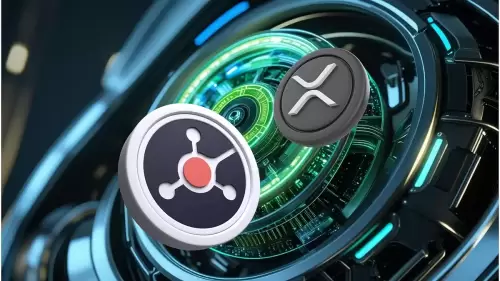Solana developers are planning what could be the blockchain's most ambitious core upgrade to date — one that replaces its current technology stack

Network newsSOLANA TO GET MAJOR DESIGN OVERHAUL: Solana developers are planning what could be the blockchain’s most ambitious core upgrade yet — one that replaces its current technology stack with a redesigned consensus protocol built for near-instant finality and responsiveness. The new system, called Alpenglow, was unveiled on Monday by infrastructure firm Anza, a Solana Labs spinout. It proposes replacing Proof of History — Solana’s famously unique “pre-recorded clock” system — and Tower BFT, its existing voting mechanism for reaching consensus. Instead, it introduces a lightweight asynchronous blockchain designed to be highly responsive and capable of achieving finality within an average of three to five seconds. At the same time, Anza is planning to release a modular framework called Stellar that aims to simplify development and interoperability on Solana. "We believe that Solana can serve as a model for how to build more performant, scalable, and modular blockchains of the future," Anza said in a statement. A proposal for new Ethereum nodes to make them easier to runEthereum co-founder Vitalik Buterin has proposed a new design for network nodes that aims to reduce the hardware burden and make it easier to participate in securing the network. In a blog post on Monday, Buterin framed the proposal as a step toward a fully decentralized network that doesn't require users to have sophisticated infrastructure to help maintain the blockchain. The proposal introduces the concept of "partially stateless nodes," which would allow users to store only a subset of Ethereum's data, rather than the entire blockchain that clocks in at over 1.3 terabytes (TB). Currently, anyone who wants to run a full Ethereum node needs to download and store the blockchain, which Buterin said poses a barrier to decentralization. He said that while services like ChainSafe and Blockstream can help set up nodes for users, they are ultimately a "decentralization-diminishing band-aid." Buterin suggested that focusing on statelessness could be a better long-term solution. He proposed a system where nodes would only need to store the state of the blockchain for a specific period, such as the last three months, and would download and process transactions in batches, rendering them stateless. He said this would make it possible to run a node on consumer hardware like a laptop or small server. A$135M token sale for World's Network to A16Z, Bain Capital CryptoSam Altman's blockchain project World Network has raised $135 million in a private token sale of its WLD token to venture capital giants a16z and Bain Capital Crypto, according to a Monday announcement. The funding will be used for network expansion as the group behind the blockchain announced the project's in-app functionalities as well as the WLD token have become available earlier this month to U.S. users. The token will serve as the primary means of exchange within the network's ecosystem, which is powered by a variant of the Solana blockchain. In addition to the token sale, World Network is also launching a grant program to support developers building on its platform. The company said it is seeking to build a decentralized network with a focus on interoperability and user experience.
Disclaimer:info@kdj.com
The information provided is not trading advice. kdj.com does not assume any responsibility for any investments made based on the information provided in this article. Cryptocurrencies are highly volatile and it is highly recommended that you invest with caution after thorough research!
If you believe that the content used on this website infringes your copyright, please contact us immediately (info@kdj.com) and we will delete it promptly.











































































